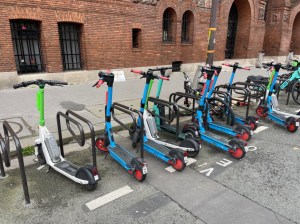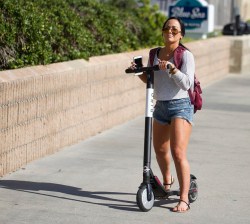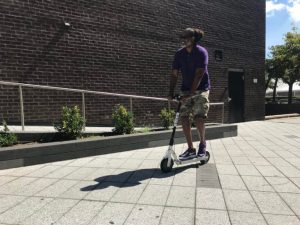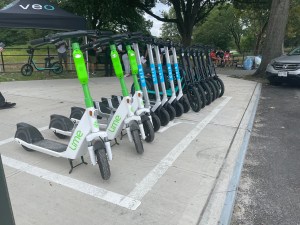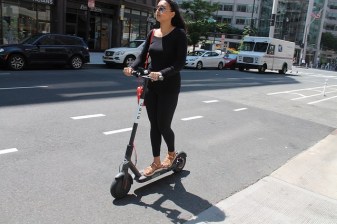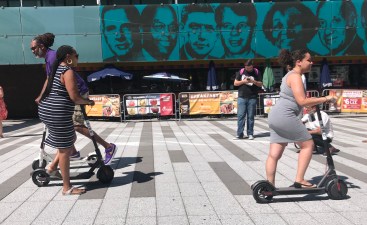Two Scooter Companies Claim They Have the Tech to Stop Sidewalk Parking
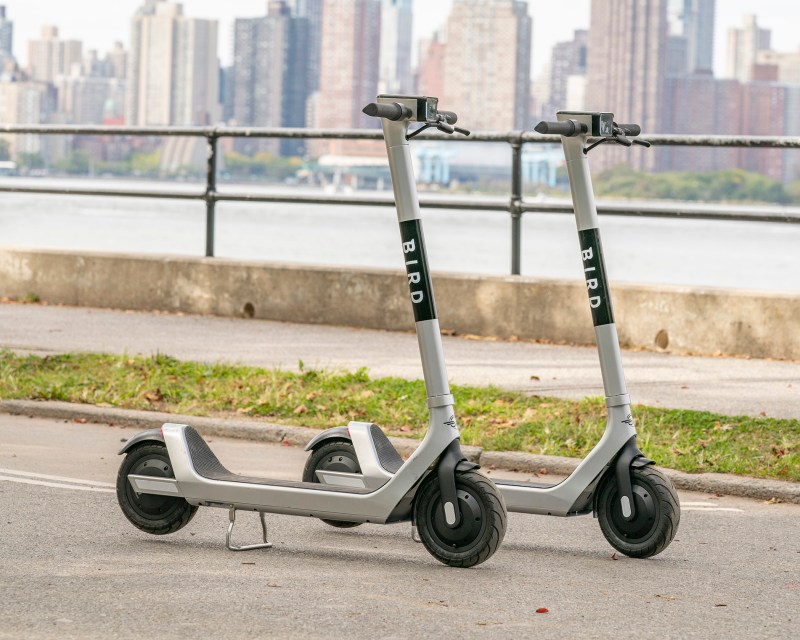
Updated | Two e-scooter-share companies, Bird and Lime, unveiled new tech for combatting the single-biggest complaint about scooters: riders who leave them all over the sidewalk.
Today, the companies unveiled a new system that both companies call VPS (“Visual Parking System” for Bird and “Visual Positioning Service” for Lime) which uses existing cellphone apps — plus a new technology called “ARCore Geospatial API” — to let you scan the surrounding buildings and merge it with Google Street View to convey your scooter’s location to the companies. Bird will give its customers a future discount if the VPS confirms that you left your scooter “inside designated parking corrals, near bike racks and other approved areas,” according to Bird.

“The new ARCore Geospatial API from Google is an absolute game changer for micromobility that allows us to offer cities a first-of-its-kind Visual Parking System that’s unmatched in terms of accuracy and scalability,” Bird Chief Technology Officer Justin Balthrop said in a statement. “With Bird VPS, we’re able to meet cities’ number-one need, proper parking, in a way that’s never been possible before, and we’re able to do it at scale in cities around the world thanks to Google’s robust global data and technology.”
The end result, the company says, “is cleaner sidewalks, more organized parking, and better functioning micromobility programs, thanks to the world’s first scalable, hyper-accurate, virtual parking system.”
Lime is equally high on the new Google technology, unveiled by the company at its I/O conference.
“We strongly believe that sidewalks must be accessible to all and this partnership with Google shows promise in reducing misparked vehicles that might impede pedestrians and persons with disabilities,” said Lime President Joe Kraus. “We know our riders feel more confident taking a Lime when they understand where and how to park correctly, and we’re excited to continue working with Google to improve this experience.”
Any high-flying hype aside, the development is important because the penetration of scooter share has been hampered in many cities because of haphazard parking, with scooters abandoned on sidewalks, becoming trip hazards, and of course, being hard for the company to retrieve. “Cities rightfully worry about scooter-parking ‘clutter,'” an official of Bird-competitor Lime wrote in a 2019 Streetsblog op-ed, counseling that the best approach “is to have scooters parked no more than 60 steps from any building, available through either free-floating parking in less dense areas or abundant parking spaces in dense downtowns.”
That said, this hasn’t been a huge issue during the scooter-share pilot in the East Bronx, according to DOT spokesman Vin Barone.
“We’re proud to report riders have, by and large, followed our established parking rules as part of our popular pilot program,” he said. “We appreciate the private sector’s efforts to continuously improve the rider experience.”
https://twitter.com/angeloyoung_/status/1524515028900229121?s=12
The city’s East Bronx e-scooter-share pilot (with Bird, Veo and Lime) currently comprises 3,000 scooters operating in Wakefield, Edenwald, Co-Op City, Allerton, Morris Park, and Pelham Gardens, but will expand in June with double the number of e-scooters and a geographic zone that includes Parkchester, Soundview, Clason Point, Throggs Neck, Schuylerville and Country Club.
— with Gersh Kuntzman
Updated: The original version of this story did not report that Lime was also developing the same technology with Google.
